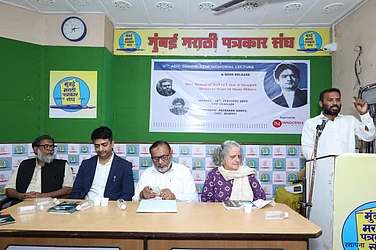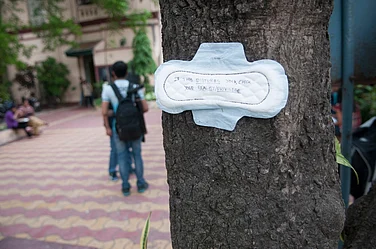A Delhi court has dismissed the petition of former Aam Aadmi Party (AAP) councillor Tahir Hussain's petition for a stay on a money laundering case against him until charges are framed against him in another case related to the 2020 Delhi Riots.
Hussain is an accused in multiple cases related to the communal riots in Northeast Delhi in February 2020. The cases are related to the killing of Intelligence Bureau (IB) staffer Ankit Sharma and the larger conspiracy purportedly behind the violence.
While the Delhi Police is pursuing the criminal cases, the Enforcement Directorate (ED) is pursuing a money laundering case that emanates from the larger conspiracy case. The ED has alleged that Hussain laundered crores of rupees using shell companies to fuel protests against the contentious Citizenship Amendment Act (CAA) and the communal violence.
In response to the petition, Additional Sessions Judge Amitabh Rawat rejected Hussain's contention that that there were no proceeds of crime or money laundering in the case, according to PTI. The judge underlined that charges in the ED's case against Hussain were framed in January and appeals against were dismissed by the Delhi High Court and the Supreme Court.
Rawat said a case under the Prevention of Money Laundering Act (PMLA) can only be registered if there exists a predicate offence (larger conspiracy to incite riots) and that both cases were investigated by separate agencies, which would be ED and Delhi Police in the case, according to PTI.
"Once the investigation into the PMLA has been initiated, it is tried as a separate case as well. Thus, predicate offence triggers initiation of a case under PMLA but is not only independently investigated but also independently and separately tried," said the court in its order passed on December 14, according to PTI.
The order further said, "It is also clear that if there is an order of discharge or acquittal in the predicate offence, then the proceedings in the PMLA case shall come to a stop. That does not mean that if there is an order on charge or conviction, there would also be an automatic conviction in the PMLA case."
The PTI further quoted the order as saying that Hussain's contention to stay the proceedings was not mandated by law and a stay would result in public witnesses being lost. The court order further said that staying the recording of evidence in the ED case would "put an embargo" on the matter itself despite the availability of witnesses.
Earlier this year, charges were framed against Hussain in cases related to the money laundering and in the case related to the IB staffer Sharma's killing.
In January, a Delhi court framed charges of Section 3 of the PMLA punishable under Section 4 of the PMLA in the money laundering case, according to Lawbeat. At the time, the prosecution said that "conspiracy was hatched" and a clear case made out against Hussain.
Twenty people, including Hussain and activists Sharjeel Imam, Umar Khalid and Khalid Saifi, have been arraigned as accused in the case related to the larger conspiracy to incite the 2020 Delhi Riots, according to PTI.
In March, a Delhi court separately framed charges against Hussain in the case related to the killing of IB staffer Sharma. The court framed charges against Hussain and others under sections 147 (rioting), 148 (rioting, armed with deadly weapon), 149 (unlawful assembly), 153A (promoting enmity between different groups on grounds of religion, race, place of birth, residence), 302 (murder), 365 (kidnapping) 120B (criminal conspiracy), 188 (disobedience to order duly promulgated by public servant) of the Indian Penal Code (IPC), 1860, according to The Times of India.
At the time, the court observed that all the accused, including Tahir, attacked Hindus and their acts were against the communal harmony between Hindus and Muslims.
"In this case, all accused indulged into targeting Hindus and their such acts were apparently prejudicial to the harmony between communities of Muslims and Hindus. They did disturb the public tranquillity as well," said the court, according to ToI. The court was further quoted as saying that "well apparent" that this mob continuously indulged into firing of gunshots, hurling stones and petrol bombs "towards Hindus and houses of Hindus".
"These acts of the mob make it clear that their objective was to harm Hindus in their body and property to maximum possible extent. It is also clearly shown that this mob consciously wanted to even kill Hindus...Every member of the mob assembled there participated in achieving the objective of targeting Hindus. Such conducts of the members of this mob show that they were acting out of the meeting of their mind and with a clear-cut objective in mind to kill and harm Hindus. Thus, a criminal conspiracy to indulge into riot and to kill Hindus and harm properties of Hindus is well reflected from the evidence on the record," said the court, as per ToI.


























